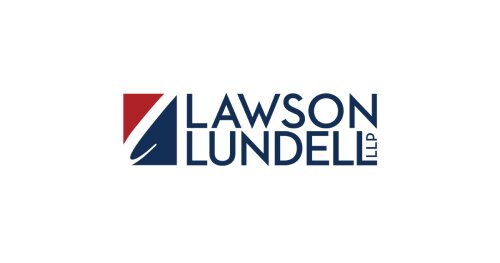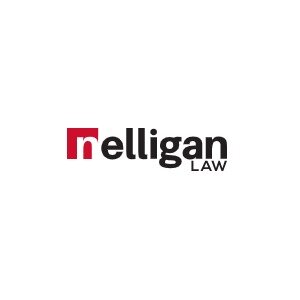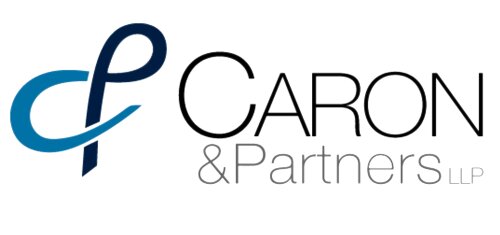Best Trademark Lawyers in Canada
Share your needs with us, get contacted by law firms.
Free. Takes 2 min.
Or refine your search by selecting a city:
List of the best lawyers in Canada
About Trademark Law in Canada
Trademark law in Canada is designed to protect the unique symbols, words, and designs that distinguish the goods or services of one business from those of another. A trademark can include virtually anything that sets your brand apart, such as logos, phrases, and even shapes. In Canada, trademarks are governed by the Trademarks Act and the Trademarks Regulations, and they are managed by the Canadian Intellectual Property Office (CIPO). Registering a trademark grants the owner exclusive rights to use the mark in Canada for a period of 15 years, with the option for renewal, effectively preventing others from using a similar mark in a way that could deceive or confuse consumers.
Why You May Need a Lawyer
Seeking legal advice on trademarks can be beneficial in various scenarios, including:
- Registration: Legal assistance can simplify the process of navigating the complexities involved in trademark registration, ensuring accuracy and completeness in your application.
- Infringement: If you suspect someone is using a mark similar to yours without permission, a lawyer can help assess and take action against infringement.
- Opposition: If your proposed trademark is opposed by another party, legal advice can help you respond effectively.
- Trademark Searches: Conducting thorough searches to ensure your trademark does not conflict with existing ones is crucial, and lawyers have the resources to perform these checks comprehensively.
- Licensing and Transfers: If you plan to license your trademark or transfer ownership, a lawyer can help draft and review agreements to protect your rights.
Local Laws Overview
Key aspects of Canadian trademark laws include:
- Use Requirement: Unlike some jurisdictions, Canada generally requires that a trademark be used in commerce for it to maintain its validity.
- Distinctiveness: A trademark must be distinctive, capable of distinguishing your goods or services from those of others.
- Registration and Opposition Process: The registration process includes a publication period during which other parties can oppose the registration, emphasizing the need for clear, defensible marks.
- Madrid Protocol: As of June 2019, Canada is a member of the Madrid Protocol, allowing for international registration of trademarks through a single application.
- Trademark Duration: A registered trademark is valid for 10 years (previously 15) and can be renewed indefinitely.
Frequently Asked Questions
What is a trademark?
A trademark is a sign capable of distinguishing the goods or services of one enterprise from those of other enterprises. It includes a wide range of marks such as words, logos, sounds, and shapes.
How do I register a trademark in Canada?
To register a trademark, you must file an application with the Canadian Intellectual Property Office (CIPO), which will examine the trademark and publish it for opposition before registration.
How long does the trademark registration process take?
The time frame varies, but it typically takes anywhere from 18 to 24 months, assuming no issues or opposition arise during the process.
Do I need a lawyer to file a trademark?
While you can file a trademark without a lawyer, legal advice is recommended to navigate potential legal complexities and to ensure your application is properly prepared.
What happens if someone opposes my trademark application?
If an opposition is filed, you will have an opportunity to respond. Legal advice is often crucial in these situations to successfully argue against the opposition.
How can I enforce my trademark rights?
Enforcing trademark rights typically involves legal proceedings such as cease-and-desist letters and potential court action, for which a lawyer can provide guidance and representation.
What are the costs involved in trademark registration?
The cost varies, but generally includes application fees, potential search fees, and legal fees if you choose to hire a lawyer.
What is the difference between a registered and unregistered trademark?
Registered trademarks offer stronger protection and exclusive rights under the Trademarks Act, while unregistered trademarks are protected by common law, which can be more limited in scope.
Can I trademark a domain name?
A domain name can be registered as a trademark if it is used to distinguish your goods or services and meets the typical requirements of a trademark.
What can I do if my trademark is being infringed upon?
You can take legal action to stop the infringement, which may involve sending a cease-and-desist letter and possibly filing a lawsuit. Legal counsel would be advisable in such situations.
Additional Resources
For more information, consider these resources:
- The Canadian Intellectual Property Office (CIPO): They provide comprehensive guides and resources for trademark registration and management.
- The Intellectual Property Institute of Canada (IPIC): A professional association that offers resources and referrals for intellectual property concerns.
- Industry Canada: Provides policy direction and oversight for intellectual property laws in Canada.
Next Steps
If you are considering registering a trademark or facing a trademark issue, here’s what you should do next:
- Conduct a preliminary search to ensure your trademark is unique.
- Consult with a trademark lawyer to discuss your needs and to guide you through the registration or enforcement process.
- Prepare and file your application with the Canadian Intellectual Property Office (CIPO) or engage your lawyer to handle this for you.
- Stay informed about the status of your application and any potential oppositions.
- Consider the future maintenance and possible enforcement of your trademark rights to ensure continued protection.
Lawzana helps you find the best lawyers and law firms in Canada through a curated and pre-screened list of qualified legal professionals. Our platform offers rankings and detailed profiles of attorneys and law firms, allowing you to compare based on practice areas, including Trademark, experience, and client feedback.
Each profile includes a description of the firm's areas of practice, client reviews, team members and partners, year of establishment, spoken languages, office locations, contact information, social media presence, and any published articles or resources. Most firms on our platform speak English and are experienced in both local and international legal matters.
Get a quote from top-rated law firms in Canada — quickly, securely, and without unnecessary hassle.
Disclaimer:
The information provided on this page is for general informational purposes only and does not constitute legal advice. While we strive to ensure the accuracy and relevance of the content, legal information may change over time, and interpretations of the law can vary. You should always consult with a qualified legal professional for advice specific to your situation.
We disclaim all liability for actions taken or not taken based on the content of this page. If you believe any information is incorrect or outdated, please contact us, and we will review and update it where appropriate.
Browse trademark law firms by city in Canada
Refine your search by selecting a city.















